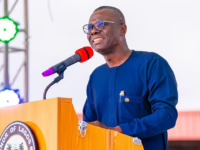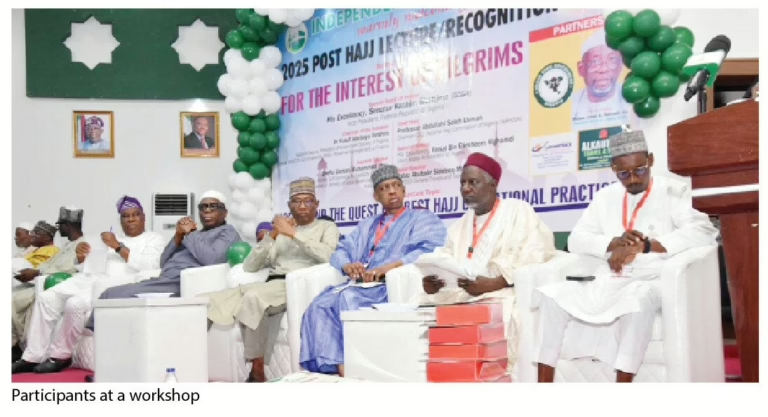I am deeply grateful to the Independent Hajj Reporters (IHR) for their kind invitation and for selecting me as a guest speaker among many distinguished experts in the Hajj and Umrah sector. This choice reflects a thoughtful recognition-not of theoretical expertise alone, but of practical experience rooted in the real-life journey of the pilgrim.
Grounded Realities of Hajj Operations
Managing Hajj is far from a purely academic pursuit where flawless theoretical models dictate every step from Arafah to Muzdalifah. Instead, it is a professional endeavor demanding firsthand engagement with the daily realities faced by pilgrims. While I hold great respect for the scholars who have contributed their insights to this field, the essence of Hajj management lies with those who operate on the ground, navigating challenges and crafting effective solutions through lived experience. I remain a learner, aspiring to contribute academically one day, but the core of Hajj service is practical expertise.
Recognizing the Role of IHR and Stakeholders
My sincere appreciation goes to IHR for their vigilant oversight of Nigeria’s Hajj operations. By monitoring operators, regulators, and administrators, IHR serves as a vital watchdog and partner, documenting Hajj activities not only within Nigeria but across the global pilgrimage landscape. Their detailed reporting and evaluations carry significant influence, grounded in their embedded presence throughout the entire pilgrimage process-from Nigeria to the sacred sites and back. Engaging IHR alongside operators and officials is essential for continuous improvement and authentic feedback on the pilgrim experience.
My Position and the Central Focus on Pilgrims
As a tour operator and active member of the Association for Hajj and Umrah Operators of Nigeria (AHOUN), my perspective is informed by operational best practices that prioritize the pilgrim above all. It is important to emphasize that pilgrims, whether they travel through state pilgrim boards or private agencies, share the same status and deserve equal care. The National Hajj Commission of Nigeria (NAHCON) does not directly serve pilgrims but functions as a supervisory and coordinating body, ensuring that all operators uphold standards. Regardless of the channel, the pilgrim remains the singular focus of all efforts.
Placing the Pilgrim at the Core of Every Decision
Every operational choice, whether made by government entities or private firms, must revolve around the pilgrim’s welfare, safety, and dignity. Excellence in service transcends organizational boundaries; the pilgrim is the ultimate client and beneficiary. NAHCON’s role is to oversee and harmonize the efforts of all operators, not to create separate experiences. The collective responsibility of all stakeholders is to safeguard the pilgrim’s journey.
Bridging the Gap Between Public and Private Sectors
It is a misconception to draw rigid lines between state pilgrimage boards and private tour operators. Both serve the same individual-the Nigerian pilgrim. For instance, during Hajj 2024, President Asiwaju Bola Ahmed Tinubu, GCON, extended a subsidy intended for all Nigerian pilgrims, including Christians and Muslims. Unfortunately, Muslim pilgrims under private operators were excluded, which was not the President’s intention. Similarly, the 50% subsidy granted to Christian pilgrims for the 2026 Jerusalem pilgrimage is expected to be extended to Muslim pilgrims for Hajj 2026, irrespective of their chosen service provider.
Evaluating Success Through the Pilgrim’s Experience
The true indicator of success in Hajj operations is straightforward: the pilgrim’s needs are met according to the service they selected and paid for. The pilgrimage journey begins in Nigeria, extends to the holy sites, and concludes with a safe return home. Throughout this process, the pilgrim’s experience should be smooth, free from unnecessary obstacles, and focused on the spiritual significance of the rites rather than logistical distractions.
Ensuring Protection, Transparency, and Respect
From departure to return, pilgrims must be shielded from undue stress and complications related to travel arrangements, accommodation, transportation, and guidance. The pilgrimage path should be marked by clarity, consistency, and respect, allowing pilgrims to concentrate fully on their sacred duties without interference from operational shortcomings.
NAHCON’s Duty as a Regulatory Body
Within this framework, NAHCON holds a critical responsibility to guarantee that all service providers-whether state boards or private operators-fulfill their obligations to pilgrims. Its oversight must be impartial, vigilant, and pragmatic, ensuring the integrity and smoothness of the pilgrimage experience from start to finish.
Embracing Digital Innovation for Enhanced Pilgrimage Management
To address the evolving demands set by the Saudi Ministry of Hajj and Umrah, NAHCON should spearhead a digital transformation aimed at delivering a more seamless, transparent, and accessible Hajj experience for Nigerian pilgrims. Modernizing operations is not just about speed but about enhancing the quality and dignity of the journey, ensuring higher satisfaction and operational efficiency.
Modernizing Payment Systems and Centralizing Services
Outdated payment methods like bank drafts should be replaced with secure, convenient digital alternatives. Establishing a centralized online platform for booking and payments would empower pilgrims to register, pay, and obtain vital information from their homes safely and easily. This platform should integrate or develop a comprehensive payment solution that consolidates all fees, streamlining transactions, reducing queues, and enabling transparent tracking of payments.
A Pilgrim-Centered Digital Future
The digital shift must prioritize the pilgrim’s experience, using technology to enhance transparency, minimize friction, and protect privacy without compromising the personal care essential to the pilgrimage. The goal is to humanize-not just digitize-the process by providing clear communication, secure transactions, timely updates, and respectful engagement at every stage.
This transformation should be inclusive, accommodating pilgrims with varying levels of digital literacy through straightforward instructions, multilingual support, and offline alternatives. Security and trust are paramount, requiring robust data protection, strong authentication, and resilient systems capable of withstanding disruptions.






















